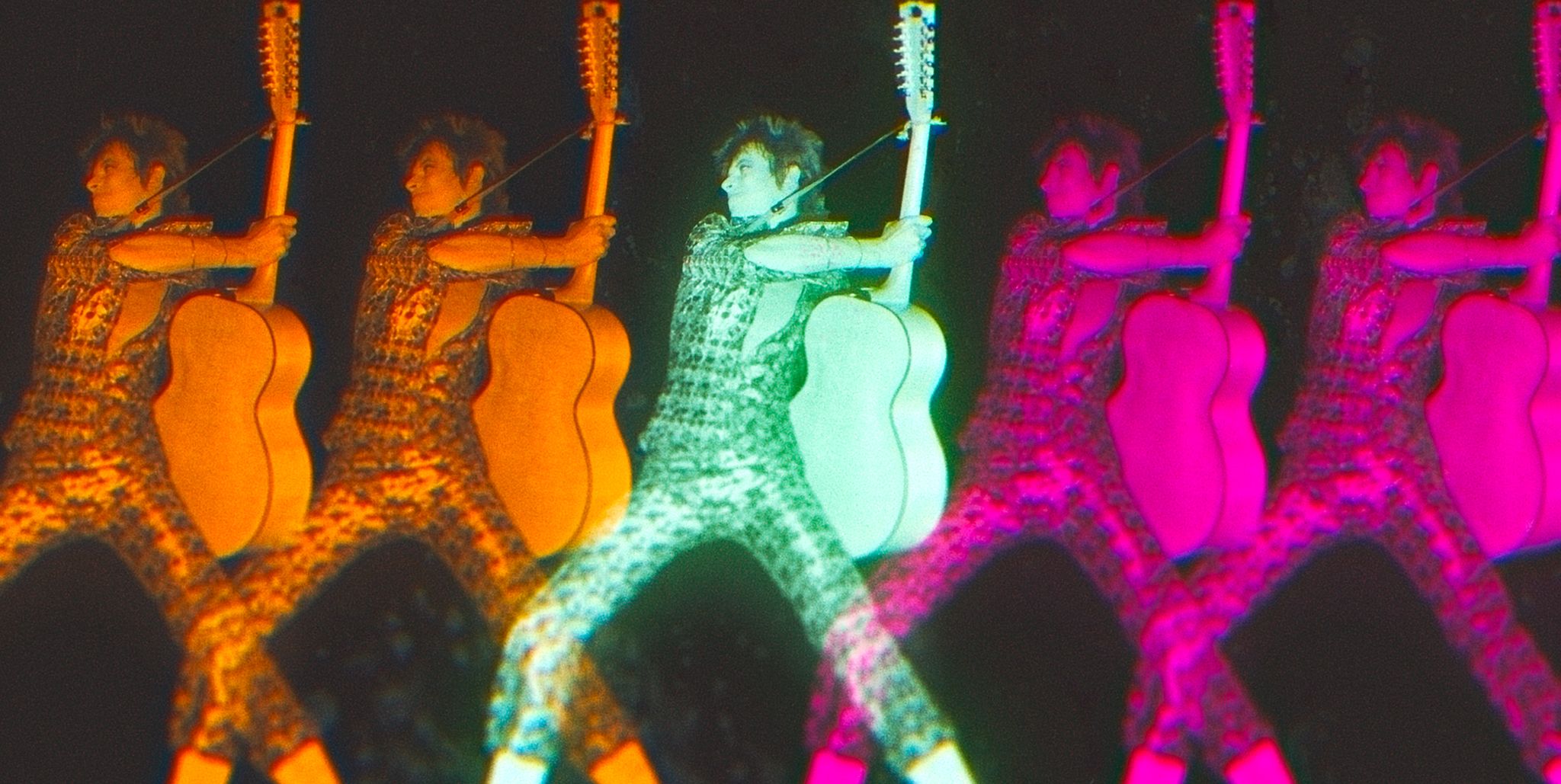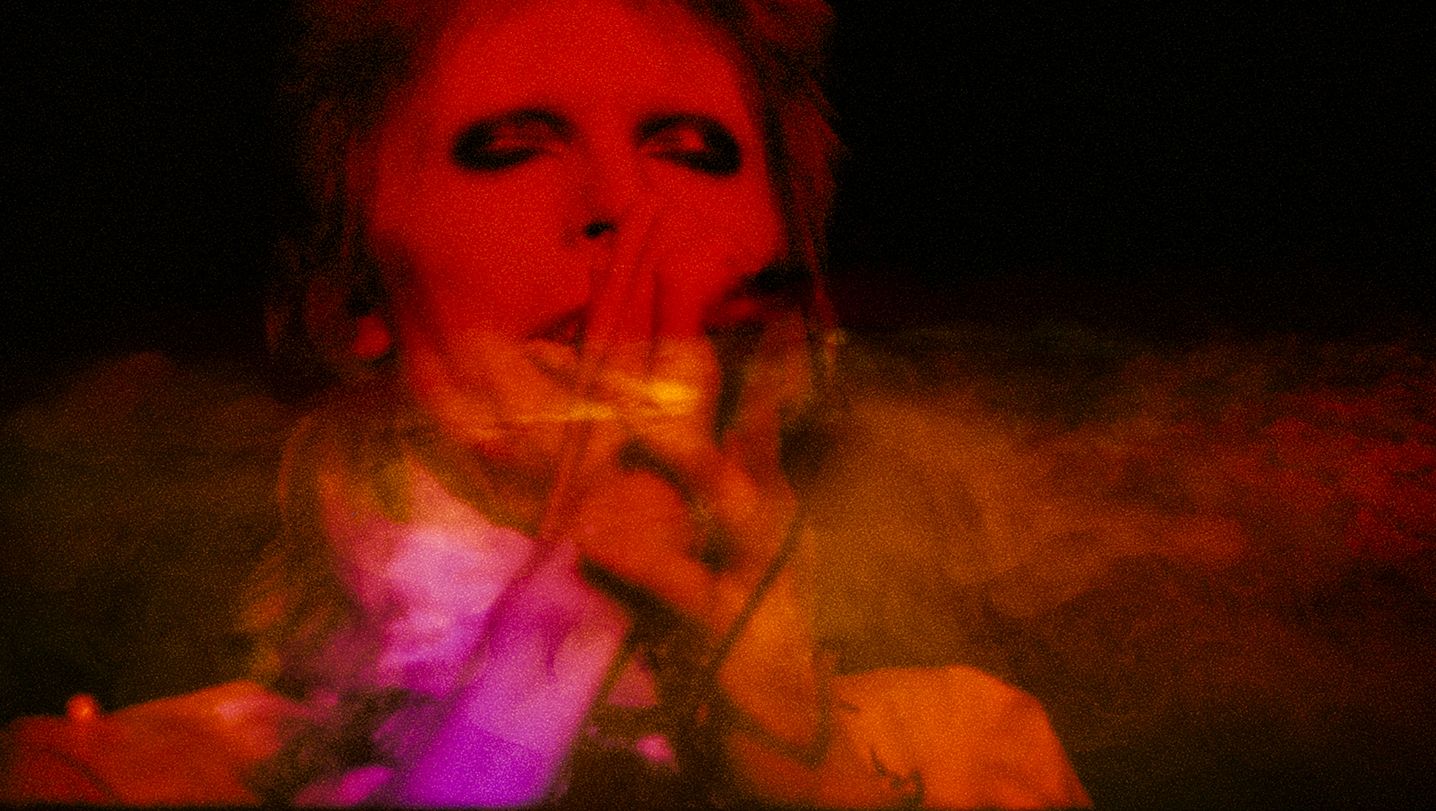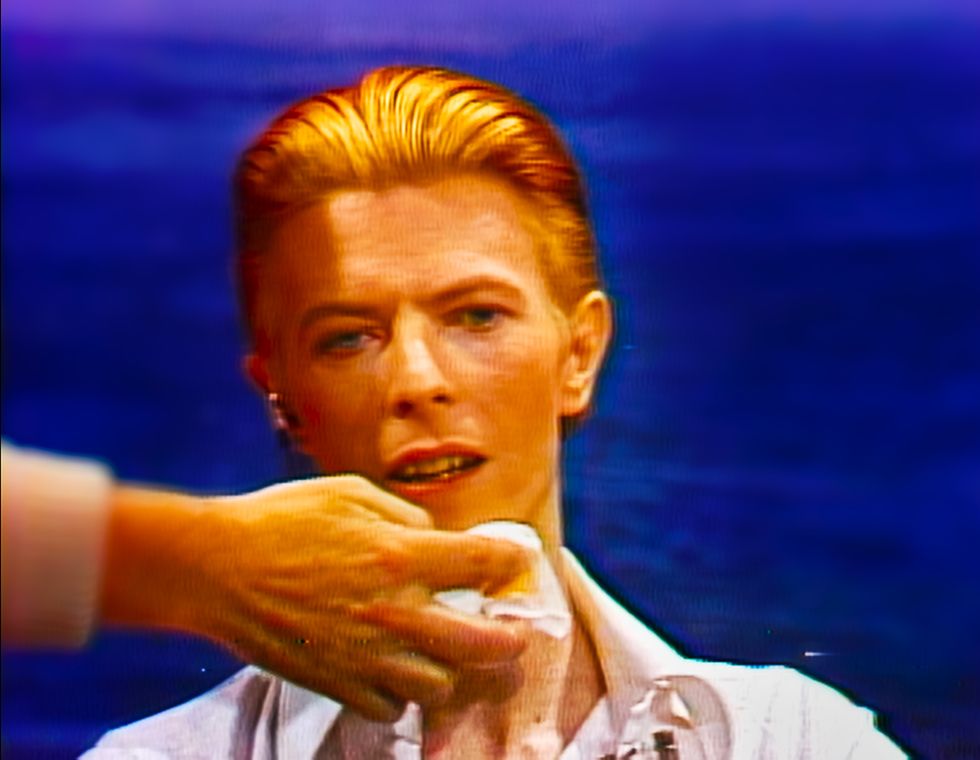Biopics suck. They are lazy, dishonest and — far worse — deathly dull. Biopics of famous musicians suck hardest. Filmmakers’ cynical attempts (shocking, no?) to exploit the continuing popularity of decaying rock stars for easy bums on seats, have resulted in some of the least edifying and most overpraised mainstream movies in recent memory. As well as excruciating performances of overwrought mimicry from some of our most garlanded performers.
Attempts to make chaotic, contradictory lives conform to the high-concept, pre-programmed story beats of this most formulaic of genres have successfully blunted the appeal of artists as spiky as — deep breath — James Brown, Elvis Presley, Jim Morrison, Tina Turner, Hank Williams, Elton John, Ray Charles, Johnny Cash, Aretha Franklin, Freddie Mercury and even The Notorious B.I.G. (Although I confess I did enjoy the one where Kim Basinger played Eminem’s mum.)
Rock biopics spin straw from gold, reducing switchback stories of inexplicable triumph and meaningless disaster into convenient three-act parables of narrative cause and effect, seeking to explain the how and why and what exactly (because surely there must be a reason for success — and failure) propelled the performer in question, rather than some other luckless minstrel, first to stratospheric heights of fame and acclaim (yawn) and later rock-bottom lows of pain and shame (snore). As if you could ever explain Jerry Lee Lewis. As if there must be a reason for Miles Davis.
Very occasionally an exception arrives to proves the rule. I’d nominate Todd Haynes’ 2007 Bob Dylan movie, I’m Not There, in which six separate actors, including Cate Blanchett, play Bob-adjacent individuals, representing alternative facets of the man’s character at different stages in his iconography. By taking this approach, Haynes’ movie reveals far more about our relationship to Dylan and his work than any number of dutiful trawls through the backstory ever could — while the man himself remains, appropriately, aloof and unknowable. (Haynes’ Superstar: The Karen Carpenter Story, from 1987, was equally bold, not least in its use of Barbie dolls rather than actors, and equally effective. Let’s draw a glittered veil over Velvet Goldmine, his glam rock opus.)
But for the most part, just as even the greatest rock stars, slumming it as actors, should stay off our cinema screens, so the movies should leave pop well alone. (Exception: A Hard Day’s Night.)
Rock documentaries are even more extravagantly boring than biopics: negligent, redundant rehashes of the same dreary old war stories, megaphones for received opinions about the history of pop culture and the creation of the canon. All those talking heads, all that stock footage, all those rheumy-eyed greybeards droning on about Laurel Canyon and Altamont and CBGB and Studio sodding 54... By rights, the rockumentary (if you will) ought to have been killed as dead as a spontaneously combusted drummer by Spinal Tap, the unimprovable spoof from 1984. But documentary makers are as shiftless and lacking in inspiration as the rest of us, and so the repetitions rumble on. And, lobotomised as we are by the streaming services, we sit there dazed on our sofas submitting to hour upon interminable hour of the unreliable reminiscences of dribbling roadies and raddled groupies and worse. (Knackered magazine hacks?)
Again, there are exceptions. Last year brought two good ones, both assembled using previously unseen footage from 1969: Peter Jackson’s fab Get Back, about the last days of the Beatles; and Questlove’s groovy Summer of Soul, about a spectacular festival of black music in Harlem.
Now comes something more daring, and cinematic, and still more successful: Moonage Daydream, an attempt to capture on film some of the otherworldly appeal of the extraordinary David Bowie. (There was a recent biopic, the unpardonable Stardust, and there have been numerous earlier documentaries, some of which are drawn upon here, including the terrific BBC film, Cracked Actor, from 1975. But nothing on screen about Bowie has come close to this in terms of ambition or execution.)
Moonage Daydream is written, directed, edited, and produced (phew!) by the American filmmaker Brett Morgen, previously known for The Kid Stays in the Picture, his affectionate homage to the Hollywood producer Robert Evans; and for Cobain: Montage of Heck, about the unhappy Nirvana frontman. Morgen’s new film is less montage than collage: a kaleidoscope of concert footage, snatches of interviews, pop videos, movie clips, and psychedelic starbursts of visual pyrotechnics. Bowie’s cut-up technique of lyric writing, borrowed from William Burroughs, has inspired a film that is almost as restless and spacey as the man himself.
Sanctioned by the Bowie estate, which apparently gave Morgen access to five million pieces of archived material (it’s a wonder he kept the run-time to a brisk 140 minutes), Moonage Daydream does not seek to be definitive, or exhaustive. It’s a meditation on Bowie’s brilliance, an immersion in his aesthetic, and a portrait of the artist as existentialist — a searching, compulsively creative spirit. The Bowie of Moonage Daydream is funny, charming, courageous, and endlessly patient with journalists (a rare and valuable quality, that one). Also: great hair, incredible wardrobe. To say that he was worshipped by his fans is to considerably undersell Bowie’s messianic effect, especially during his Seventies pomp. Bowie was beloved, and this film leaves those of us too young to clearly remember his imperial phase in no doubt about why that might have been. He is mesmerising.
The film opens in media res, with a recording of Bowie speaking. He’s in philosophic mode, talking about Nietzsche and sounding, just for a moment, dangerously like the adenoidal drug dealer Danny, from Withnail and I, creator of the Camberwell Carrot. Chaos and fragmentation defined Bowie’s early worldview and it’s chaos and fragmentation we get here, plunging headlong into a sci-fi extravaganza of sounds and visions, beginning with a gripping live “All The Young Dudes” — the first of a series of previously unseen concert performances, testament to Bowie’s terrific stagecraft. (The music has been remixed by the great Tony Visconti.)
It’s not that there is no narrative thrust to this rocket. We revisit Bowie’s south London childhood. (He was born in Brixton, just down the road from Danny’s Carrot.) We follow him to the locations of his triumphs — Hammersmith, Hollywood, West Berlin — and on his perpetual, peripatetic adventures. We watch him emerge as Ziggy Stardust, Aladdin Sane, the Thin White Duke. We join him during his pop hitmaker years in the mid-1980s — remunerative, but unfulfilling — and his later return to more experimental concerns. We learn little about his private life, beyond the fact that he feared going mad, following the dreadful fate of his brother, Terry; and he was extremely keen on his second wife, Iman.
That’s pretty much it for the Wikipedia stuff. Moonage Daydream fails to reduce its subject to a series of weary cliches, or to get hung up on the mundane details, all of which you can Google if you really, really haven’t heard them already. This is a rock doc, then, that changes the record. Best of all it reminds us of what a singular figure Bowie was, and how exciting pop culture’s glory years really were, when a freaky, druggy, sexy avant-garde artist could also be the number one teenybopper sensation in the world. What a beautiful man he was. How we miss him. How we could use him now.
Moonage Daydream will be released in cinemas on 16 September.















